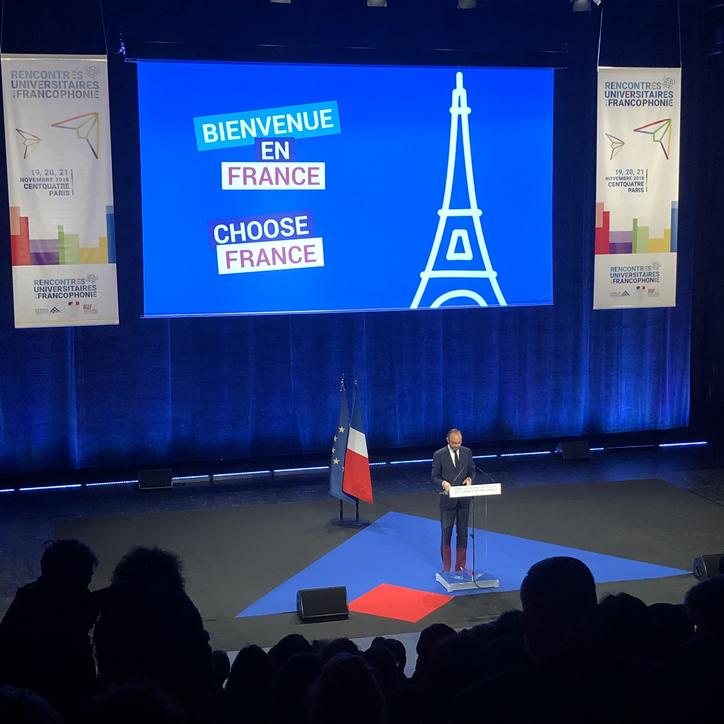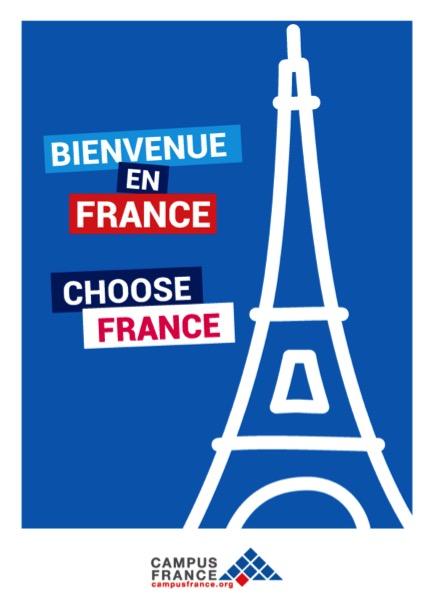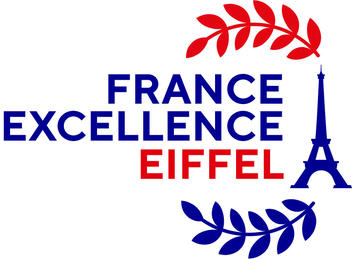
French PM Philippe opens the Rencontres Campus France and introduces actions of “Bienvenue en France” strategy
French Prime Minister Edouard Philippe take the opportunity of opening the Rencontres Universitaires de la Francophonie (Academic meetings for La Francophonie) held by Campus France to launch the national strategy for soft power directed to international students and detail its three main cornerstones.
Le Premier Ministre Edouard Philippe a inauguré l'édition 2018 des Rencontres Campus France, dédiées cette année à la francophonie. Frédérique Vidal, ministre de l'Enseignement supérieur, de la Recherche et de l'Innovation et Jean-Basptiste Lemoyne, secrétaire d'Etat auprès du ministre de l'Europe et des Affaires étrangères, étaient à ses côtés pour s'adresser à l'ensemble des 400 participants, représentants des établissements et des organismes de recherche français, des postes diplomatiques et des établissements bi-nationaux et étrangers.
Il a souhaité rappeler l'importance de la francophonie, "langue de communication et de création, [mais aussi] langue d'éducation" pour "gagner la bataille de la concurrence internationale entre nos systèmes d'enseignement supérieur et de recherche". Il a salué le travail de l'Agence Universitaire de la Francophonie (AUF) et de Campus France et a fixé l'objectif d'augmenter significativement le nombre de co-diplômes et d'accords entre établissements pour favoriser la mobilité internationale des étudiants et atteindre 500 000 étudiants en mobilité en France d'ici 2027.
Face à une concurrence internationale de plus en plus vive, la France doit rester l'un des acteurs majeurs de [la] mondialisation des études supérieures. C'est pourquoi nous présentons aujourd'hui la stratégie "Bienvenue en France". Edouard Philippe, Rencontres Universitaires de la Francophonie (le Cent-Quatre Paris, 19 novembre 2018)
Mieux accueillir
Le premier pilier de la stratégie nationale d'attractivité des étudiants internationaux repose sur l'amélioration des conditions d'accueil, et ce dès les premiers contacts avec les services de l'Etat français.
Plusieurs mesures sont énoncées concernant la délivrance de visas :
- Harmonisation et simplification des documents nécessaires à la demande de visa pour études,
- Demande de visa pour études en ligne,
- Validation du visa en ligne à l'arrivée en France,
- Priorité au traitement des demandes de visas pour études dans les consulats à l'approche de la rentrée,
- Possibilité de revenir travailler en France ou y créer une entreprise avec un titre de séjour, pour les étudiants étrangers titulaires d'un diplôme français équivalent au Master.
L'accent sera mis sur le développement d'une véritable culture de l'accueil avec le souhait de généraliser toutes les bonnes pratiques déjà existantes au sein des établissements français :
- Création d'un label "Bienvenue en France" attribué par Campus France aux établissements qui améliorent concrètement l'accueil des étudiants internationaux,
- Création d'un fonds d'amorçage de 10 millions d'euros par le ministère de l'Enseignement supérieur, de la Recherche et de l'Innovation pour soutenir, dès la rentrée 2019, les initiatives des établissements,
- Systématisation des guichets uniques,
- Accompagnement de chaque étudiant étranger par un référent,
- Facilitation de l'accès au logement avec la mise à disposition en anglais de la plateforme Lokaviz et la création d'une maison des étudiants francophones à la Cité Internationale Universitaire de Paris,
- Doublement des formations en Français Langue Etrangère- FLE et des formations enseignées en anglais.
Assurer une meilleure équité financière
Pour garantir une meilleur équité financière, le gouvernement mettra en place une série de mesures sur deux niveaux :
- Les étudiants internationaux non-ressortissants de l'Union Européenne, de l'Espace Economique Européen ou de Suisse paieront désormais des frais d'inscription à l'université correspondant au tiers du coût réel de leur formation, soit 2 770 euros en licence et 3770 en Master et Doctorat.
- Le nombre de bourses accordées aux étudiants étrangers sera triplé pour continuer à soutenir les étudiants les moins fortunés : 15 000 bourses d'exonération des droits d'inscription seront attribuées par le ministère de l'Europe et des Affaires étrangères, via les postes diplomatiques, et 6 000 autres bourses seront attribuées par les établissements eux-mêmes.
Au total, 1 étudiant international sur 4 pourra bénéficier d'une exonération ou d'une bourse.
Rayonner à l'international
Le gouvernement souhaite encourager les implantations des établissements français à l'international à l'instar de ce que font déjà l'ESSEC à Singapour et à Rabat, l'Ecole Centrale à Pékin et à Casablanca, ou Paris Dauphine à Tunis. Il a été décidé de soutenir :
- les démarches exploratoires des établissements français, via la création d'un fonds d'amorçage de 5 millions d'euros par le ministère de l'Europe et des Affaires étrangères,
- la mise en oeuvre des projets les plus pertinents et solides, via la création d'un fonds de soutien de 20 millions d'euros par an à compter de 2020.
Tout le détail des mesures de la stratégie "Bienvenue en France" sont à retrouver dans le dossier de presse

Related contents
Recommended News




















































